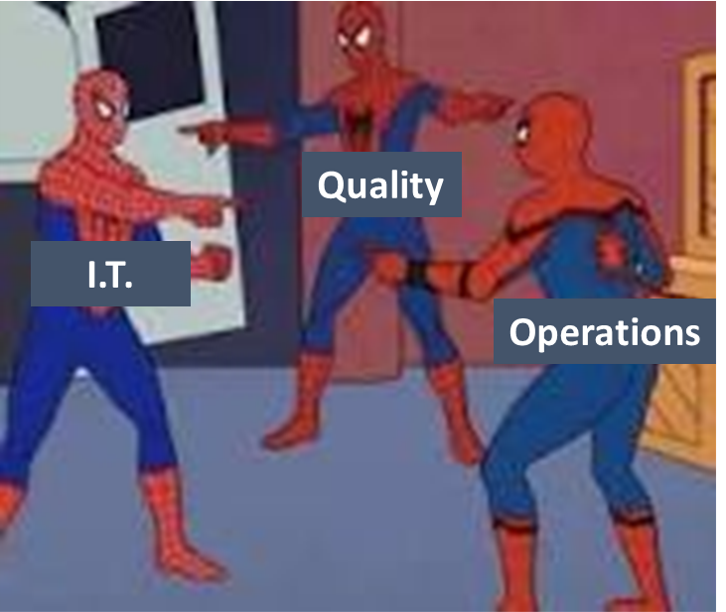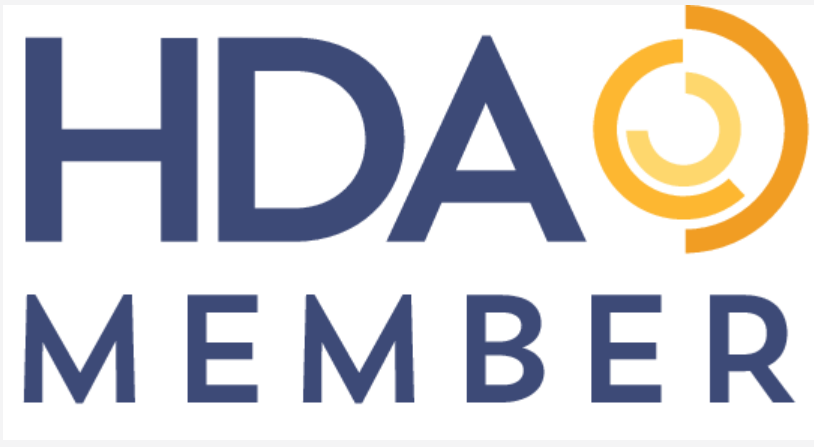Who Owns My Companies DSCSA Requirements?

As the industry continues to move past the end of exemptions and the full requirements of DSCSA take effect, most organizations are realizing they need a clear effort to ensure that DSCSA is fully transitioned into operations with alignment on what groups own each of the requirements. This is best accomplished through shared governance with a foundation based on ensuring full documentation and/or GxP compliance for the new areas created for DSCSA. Without such an approach, your organization may drift into a few patterns we often see emerge:
Missed Requirements: DSCSA was handled in phases and different groups that fail to include a bigger picture look to ensure readiness for external audits by federal or state authorities. The weeds of DSCSA can be deep and it is easy to loose sight of areas of compliance if the focus becomes to narrow or miss updated guidance, standards, or industry best practices.
The Never Ending Project: Project Resources that were budgeted for a limited period are put in an endless state of extensions. Rather than moving management to operators and analyst who are better positioned to handle support or customer concerns. As a result, senior or contracted resources are extended continuously causing over runs in budget.
Fading Compliance: Systems or processes that were established to manage requirements fail to take root with owning organizational groups as resources move on to other efforts. We have seen instances where other organization projects then come along and remove system, processes, or procedures that were put in place for longer term compliance needs.
Lack of GxP Impact Understanding: A common issue is not involving Quality Assurance and Regulatory resources as clear partners in implementation and then failing to help them understand that failure to comply with DSCSA is a clear violation of federal law and GxP. If you ask most quality resources if Lot/Batch number is a GxP requirement, they will say that it obviously is and needs to be well covered by procedures and controls. If you ask the same resources if serial number or the 2D Datamatrix barcode scanability is a GxP requirement, we find you may often not get the same answer. Most would say it is a crazy idea to assign Lot/Batch management to a single resource or project team but that is often how we find DSCSA requirements are handled.
If any of these situations arise, your organization may find itself in an uncomfortable position of being outside the federal law and guidance. This causes a clear risk of being unable to package, distribute, or dispense prescription drugs in the US market. We have highlighted these risks and how to understand them in several recent blogs such as: HDA DMC 2025 Takeaways and Another Warning Letter Regarding DSCSA. You can also view our webinar on “Are You Ready to Present Evidence of Your DSCSA Compliance?”:
👉 Access the webinar recording here.

- Patient Safety- the requirements of DSCSA were created for a reason and with the intent of helping keep patients safe. Requirements not covered create direct risk to the patients when product is less secure, unable to quickly address issues, make it easier for bad actors to operate. As recent news has clearly shown, the tools of DSCSA work when stakeholders and regulators use and enforce them.
- Brand and Revenue- in the event that product is stopped from further transactions in the market, there will be a direct impact to the reputation of the organization and products.
- Regulatory Observations and Warning Letters. The industry has seen a steady climb in the number of state and federal fines, observation, and warning letters related to the requirements of DSCSA. These typically become public information which leads suppliers and customers to continually ask how you resolved for years to come anytime you are engaging with a new partner.
The good news is that industry leaders are clearly showing there is a better way that can handle any exception or inspections. You need a clear effort to identify all the stakeholders, requirements, owners, gaps, transitions, and hypercare.
Ten Count's DSCSA readiness assessment and shared governance accelerator helps you rest assured you are fully complying with the law and able to provide evidence in the event of audits. We maintain a comprehensive playbook based on the latest industry insights that can be used to measure readiness and construct a workplan for any areas requiring attention. We leave this playbook as a deliverable so that it can serve your team in keeping compliance evidence up to date and ready for a state or federal audit. We offer a variety of levels of assessments depending on your needs and complexity of business roles.
We would be glad to schedule a free initial consultation to understand your challenges and discuss what type of assessment might make most sense to propose.
Reach us at info@tencountconsulting.com




